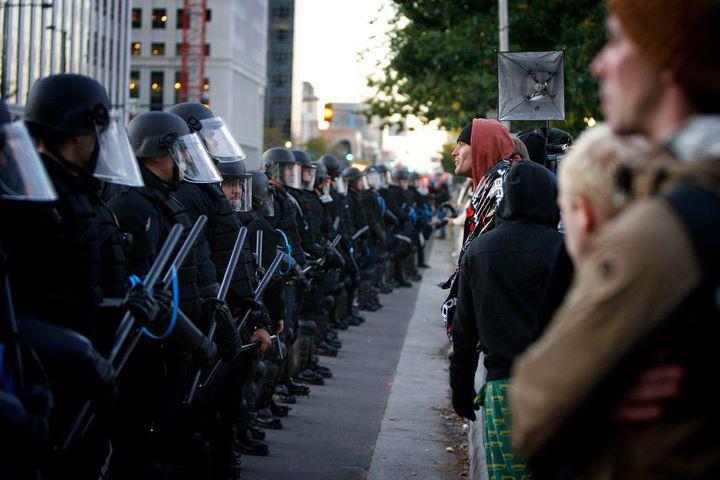- About
- Topics
- Picks
- Audio
- Story
- In-Depth
- Opinion
- News
- Donate
- Signup for our newsletterOur Editors' Best Picks.Send
Read, Debate: Engage.
Last week, the Movement for Black Lives proposed a bill that will drastically alter the U.S. criminal justice system. Titled the BREATHE Act, the bill calls for divesting federal funds from incarceration and policing programmes and investing in alternative community safety and development initiatives.
The Movement for Black Lives unveiled the bill after worldwide protests against systemic racism and police brutality were sparked following the murders of several Black people, including Breonna Taylor and George Floyd, at the hand of police officers.
The bill consists of four main sections. The first, which seeks to divest federal resources from incarceration and policing, calls to dismantle federal programmes and agencies that are used to expand the criminal-legal system, such as the Department of Defense 1033 program (which furnishes local law enforcement agencies with excess military equipment), the Drug Enforcement Administration and Immigration and Customs Enforcement.
Under this section, the bill would also implement changes to the criminal-legal system’s practices that disproportionately target and oppress Black and Brown communities, LGBTQ individuals, indigenous people, and people with disabilities. It would do so by eliminating surveillance and monitoring tactics, ending life sentences, decriminalising and retroactively nullifying drug sentences, and abolishing the “three strikes” law, among other measures.
Under section two, the bill calls for “investing in new approaches to community safety utilising funding incentives.” To that end, the bill proposes to establish grants to local jurisdictions in order to help them decarcerate their jails and defund their police forces, as well as offer a 50 per cent federal match to projected savings when local governments and jurisdictions shut down detention facilities.
Crucially, this section also stipulates the federal funding, through grants, of non-carceral community safety interventions and community development initiatives, including transformative justice and healing justice programmes, violence interruption and intervention, park and infrastructure redevelopment, adequate housing, and employment opportunities for formerly incarcerated individuals.
The following two sections of the BREATHE Act further mandate the federal investment in the construction of healthy and equitable communities, and call for measures to hold officials accountable and empower Black self-determination.
The bill has already won the enthusiastic support of progressive congress women Ayanna Pressley and Rashida Talib, but it remains to be seen whether any lawmaker would adopt and introduce the bill in the House. And while some predict that lawmakers would deem the bill’s provisions too expansive and ‘radical’, its promoters, as well as experts from across the country, believe that they can utilise the growing clamour for systemic change and racial justice in order to pressure the government to adopt it.
"I think these programs that they're suggesting eliminating only look radical if we really ignore the fact that there has been tremendous pressure to meaningfully reform this criminal justice system," said Heather Ann Thompson, professor and criminal justice expert at the University of Michigan, in an interview for ABC7. “Every radical piece of legislation that we've ever passed in this country has passed on the heels of the kinds of grassroots protests that we saw on the streets. The will of the people indicates that if they just keep putting a Band-Aid on it, these protests are not going to go away."
Whether or not the bill materialises into law, it nonetheless serves as an important reference point to community leaders and politicians who are attuned to the outcry of the people and are determined to tackle systemic racism and promote alternatives to the current criminal justice mechanisms.
The very discourse surrounding the BREATHE Act keeps the flame of these issues aflare and encourages the transformation of collective righteous anger into concrete demands toward the empowerment of Black and Brown people and the liberation of their communities from the fangs of an oppressive criminal-legal system.
Image by RJA1988
